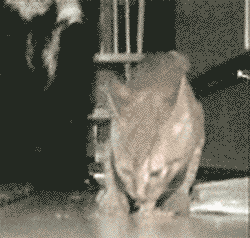Cat owners eight times more likely to have MRSA in their homes
 Pet dogs, birds, rabbits and horses can also carry the disease which is “flipping” between humans and their animals, scientists believe.
Pet dogs, birds, rabbits and horses can also carry the disease which is “flipping” between humans and their animals, scientists believe.
Animals who have close contact with humans pick up the superbug and then leave traces of it around the home where other people can be infected.
A study of homes by researchers at the Center for Hygiene and Health in Home and Community at Simmons College in Boston, found MRSA in nearly half of the 35 residences they sampled, mostly on wet surfaces like baths, sinks and tap handles.
The study concluded: “The presence of a cat in the home was found to be a strong predictor for the isolation of MRSA.”
Dr Elizabeth Scott, who led the study, told the New York Times: “There are a number of papers coming out now showing that pets pick up MRSA from us and that they shed it back into the environment again.”
Medical experts recommended people should frequently wash their hands before and after playing with a pet and not let animals lick their faces. They should also not wash pet food bowls in the same kitchen sink as cutlery.
Methicillin-resistant Staphylococcus Aureus (MRSA) lives harmlessly on the skin and in the noses of a third of the population.
The bacteria becomes dangerous when it enters the body, particularly in anyone who is vulnerable, such as the elderly, newborn babies and those recovering from surgery.
If a wound becomes infected, the bacteria can spread throughout the body and cause potentially fatal blood poisoning.




